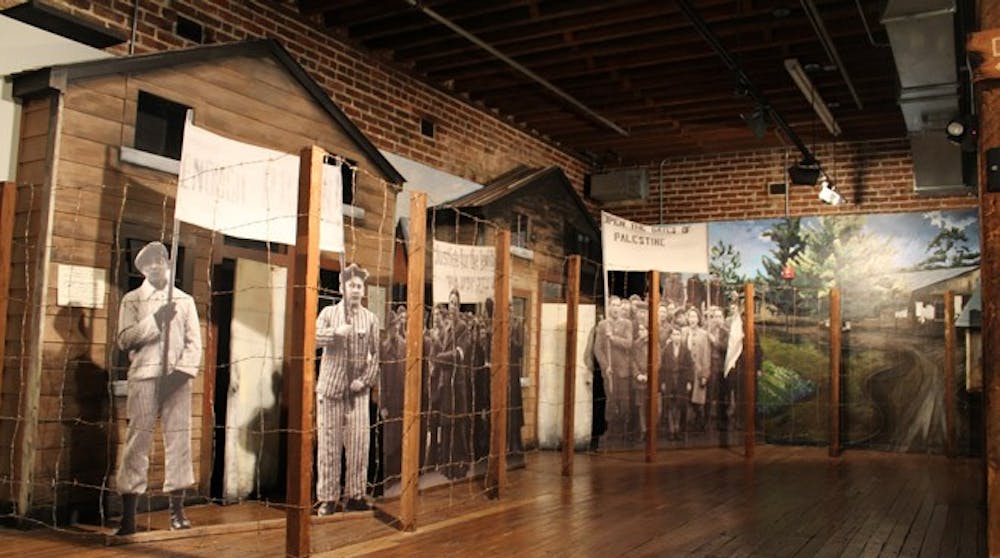Students and faculty toured the Virginia Holocaust Museum and dined with Holocaust survivors last Thursday. This program was the first of two in the "Out of the Ashes: Stories of Survival" series co-sponsored by Richmond's Hillel, a campus network that explores and celebrates Jewish life.
Eighty-six students and faculty participated, including 20 Virginia Commonwealth University students, said Andrew Goodman, Rabbi and director of Jewish life at Richmond. Goodman has been the director since July 2011 and is the first to hold this title at Richmond, he said.
Goodman said the tour and dinner program began in 2005, but this year more students participated than in past years.
Each Holocaust museum seeks to deliver its own message, Goodman said. The Virginia Holocaust Museum is based on the life of Jay Ipson, a Holocaust survivor from Lithuania.
"He created the museum as a way to show through his story the greater story of the Holocaust," Goodman said.
Holocaust survivors served as tour guides for the evening and so students felt as if they were experiencing the Holocaust, or at least certain aspects of it. "This museum does not seek to evoke emotions in people, but rather focuses on education and experience," Goodman said.
Ipson, who served as a tour guide, told students and faculty they would be "honorary Jewish people" for the duration of the tour. They had to sit on the floor during the tour, while the rabbis were able to sit on benches to get a sense of the historical dichotomy.
Alex Keisch, the youngest Holocaust survivor at 66 years old, told his life story to students and allowed them to crawl through a replica potato cellar that his family used to live in. Keisch also served as a tour guide and plans to write a book about his life, he said.
Junior Nalina Nop toured the museum and ate dinner with Keisch. "It made me sad to think how few survivors are around now," she said. "Our tour guide was the youngest in the room and he is already a grandpa. It makes me wonder who will tell their stories when they're gone. I hope people will at least make it down to the museum."
Students were able to see crematories and displaced persons camps in the museum. There was also a replica of the courtroom where men and women were prosecuted for war crimes during the Nuremberg Trials.
The tour and dinner were free for participants. "We did not want money or distance to be a hindrance," Goodman said.
Goodman wanted students to know three things, he said.
Enjoy what you're reading?
Signup for our newsletter
1.The Holocaust museum is open everyday.
2.To stand up and say something when they see wrong being done.
3.Students should know the power of their silence, reactions and ramifications of action versus inaction.
The second program of the series will be the April 17 viewing of "Weapons of Spirit" in the Ukrop's Auditorium in Queally Hall. This will be followed by remarks from Nelly Trocme Hewett, Protestant resistor of the Nazis, and Francelyn Lurie, a Jewish Holocaust survivor, Goodman said.
Contact reporter Laila Hart at laila.hart@richmond.edu.
Support independent student media
You can make a tax-deductible donation by clicking the button below, which takes you to our secure PayPal account. The page is set up to receive contributions in whatever amount you designate. We look forward to using the money we raise to further our mission of providing honest and accurate information to students, faculty, staff, alumni and others in the general public.
Donate Now



